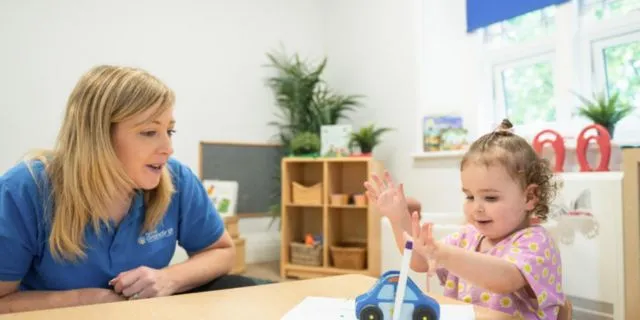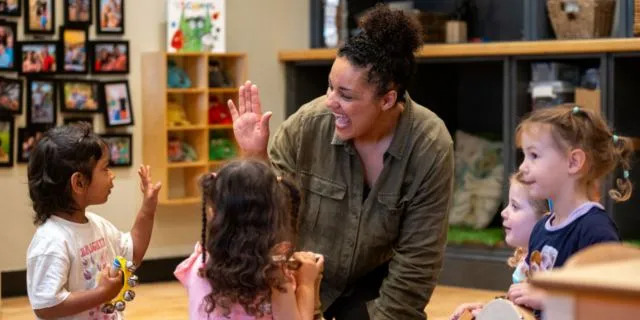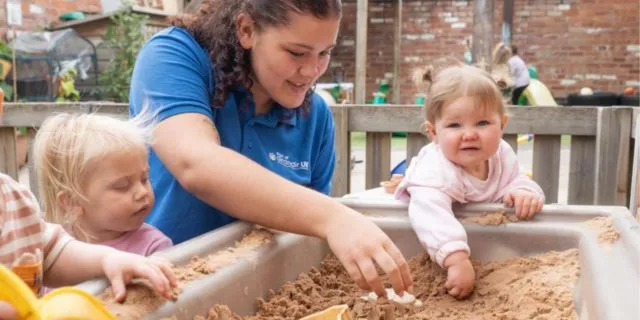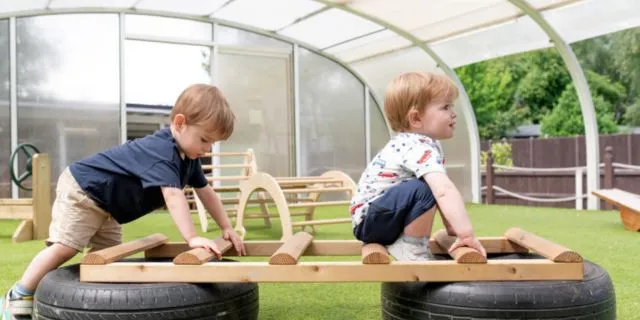Blog
Why toddlers sometimes bite: Understanding big feelings and behaviours
Blog

by Sara Coffey
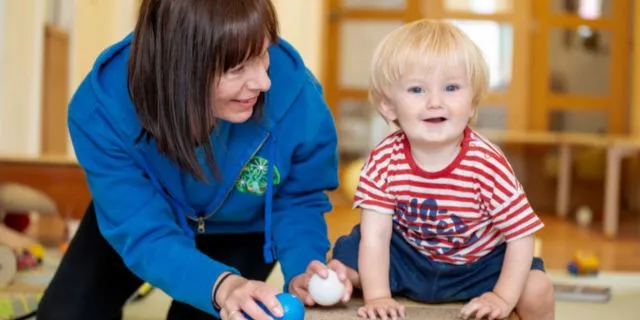
When a child bites, it can feel worrying or even embarrassing for families. But biting is actually a common part of early development for young children, especially between the ages of 12 and 30 months. With the right support, toddlers can learn safe, healthy ways to express their strong emotions.
This blog has been written to support Episode 2 of our Parent & Carer Series, which explores Little Big Feelings and offers practical guidance on why toddlers bite, how to respond in the moment, and ways to help children through this phase.
Why children bite
Toddlers bite for many reasons, and it’s rarely out of malice. A biting incident can happen when a child feels upset, excited, or overwhelmed. Sometimes, it’s a quick way for a child to get attention or a means of expressing anger when they lack the language skills to explain their needs.
Some common triggers include:
- Feeling overwhelmed by changes at home, like a new baby or moving house, which can cause stress and uncertainty.
- Limited communication skills, which makes it harder for a child to express their feelings.
- Frustration during social interactions with other children.
- Being in a developmental stage where they are learning empathy but remain self-focused.
- Sensory needs, where biting provides oral stimulation or helps to relieve pain from teething.
Tip: In younger children, biting may simply be a sensory response. Crunchy snacks like carrot sticks can help meet this need.
Strategies to respond

When a child bites, it’s important to stay calm. Overreacting can give unintended negative attention to the behaviour and make it more likely to happen again. Instead, aim for an appropriate response:
- React calmly and avoid overreacting to the biting incident.
- Maintain eye contact and try to understand the trigger so you can help your child in the moment
- Validate the child’s feelings with simple words, such as “I can see you feel upset or angry.”
- Work with your child’s teacher and carers to use consistent strategies at nursery and at home.
- Help your child understand that there are better ways to express anger or frustration.
At some Grandir UK nurseries, a calming technique called ‘Bubble Breathing’ is used. This involves a child taking a deep breath and blowing bubbles, helping them to pause, slow down, and regain self-control. This is a useful tool for responding appropriately to intense moments.
Encouraging more active playtime during the day also supports problem-solving skills and positive behaviour. It helps release pent-up energy and teaches children personal space awareness when interacting with others.
Helpful resources
These stories help guide older toddlers towards positive behaviour and self-control.
Understanding the phase
Most toddlers bite between the ages of 12 and 30 months, but they usually grow out of it as their emotional development progresses. The aim is not to punish, but to support and prevent biting by redirecting their energy and meeting their needs.
Biting is not a sign of bad behaviour, and it’s not something to be ashamed of. With consistent strategies, you can help your child manage strong emotions, respect personal space, and develop healthy language skills to express their needs.
Grandir UK nurseries work closely with families to ensure each child gets the guidance, comfort, and active play opportunities they need to thrive – turning biting from a stress point into an opportunity for growth.
Remember, it’s all part of the learning journey, and you’re not alone. We’re here to support you every step of the way.
